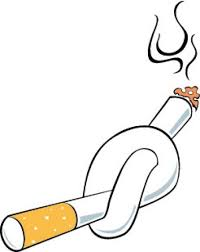 August 2017
August 2017
On one side are condo owners who hate the smell of tobacco smoke and fear the risks of second-hand smoke.
On the other side are those who feel their home is one place they can enjoy a smoke.
Condo boards and management would love to stay away from this contentious issue. They cannot. Fiduciary duty, risks and costs are just some of the reasons why.
Regardless of your personal preference, the facts on smoking are clear. The Centers for Disease Control and Prevention says there is no safe level of exposure to second-hand smoke. Among children it can trigger more frequent and severe asthma attacks. It can cause pneumonia and bronchitis. In adults smoking can cause heart disease, lung cancer and stroke.
Ground zero for this battle may be New York City after the U.S. Department of Housing and Urban Development extended a smoking ban to include 940,000 housing units across the country. While this ban only affects federal housing, condo corporations in New York City now have to consider if they should follow this regulation.
Smoking is a source of conflict among condo owners. Most dislike the smell of smoke in their suite. Some can experience health problems. Condo corporations can be required to spend significant sums of money to protect these owners from second-hand smoke.
Smokers feel their home is their castle and they should not be prohibited from smoking.
Studies show that a non-smoking building is safer for residents. There is reduced risk of fire and a lower likelihood of health issues. Condo fees and insurance rates may be affected, in the form of savings, by smoking restrictions as they become more widespread.
Smoking restrictions may also be a proactive response to the growing interest in legalizing marijuana use and mitigating its impact in condo buildings.
Condo boards likely prefer to stay away from this conflict and refrain from setting limits on what can be done in individual suites. Prohibiting in-suite smoking could lead to unintended consequences. Smokers may congregate outside the building, littering the area with their butts, and affecting suites near these areas. This would be in contravention of some condo bylaws or rules. It could result in eviction of tenants and lawsuits. Ignoring in-suite smoking that migrates to other suites or common areas could be a breach of the board’s fiduciary duty.



